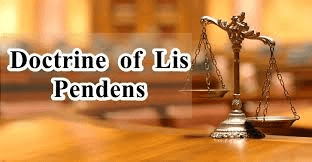Title: NARENDRA KUMAR versus RAJESH CHAUDHARY & ANR
+ RFA 282/2023, + RFA 283/2023 & CM APPL. 62717/2023, + RFA 284/2023
Decided on- 22nd December, 2023
CORAM: HON’BLE MR. JUSTICE PRATEEK JALAN
Facts of the case:
The appeals in question stem from a shared judgment and decree dated December 5, 2022, rendered by the Trial Court in three civil suits concerning a property located at C-125, Greater Kailash-I, New Delhi.
Two of the suits (Suit No. 7262/2016 and Suit No. 10272/2016) were initiated by Mr. Rajesh Chaudhary (“Rajesh”), the first appellant in these appeals. In the first suit, Rajesh contested the authenticity of an agreement to sell and power of attorney he purportedly executed in favor of late Col. Ranbir Singh’s wife, Roma Singh, and her sons, Gaurav Singh and Sorabh Singh. The second suit challenged a sale deed dated November 19, 2004, between Roma Singh and her sons in favor of Mr. Narender Kumar, alleging its nullity. The third suit (No. 8708/2016) was filed by Narender against Rajesh, seeking a declaration of exclusive ownership of the property and possession.
The impugned judgment decreed in favor of Rajesh in his two suits, while Narender’s suit was dismissed. The current appellants – Narender, Roma, and her sons – have now appealed. During the appeals’ pendency, they sought to include two additional respondents, Mr. Anup Garg and Mr. Jeevesh Sabharwal, who allegedly purchased the property from Rajesh after the impugned judgment. These purchasers were impleaded, leading to the current applications under Order XXXIX Rule 1 and 2 of the Code of Civil Procedure for an injunction against them.
In terms of relevant facts, Roma and her sons base their claim on documents, including an agreement to sell, power of attorney, will, and receipt, allegedly executed by Rajesh in favor of Ranbir on November 18, 1982, which were not registered. Mrs. Dropati Devi’s confirmation dated November 20, 1982, supports these documents. The property’s original owners were Rajesh and his brother S.K. Chaudhary, with Dropati Devi being S.K. Chaudhary’s legal heir. Roma obtained letters of administration for the property after Ranbir’s death in 1987. Subsequent legal actions, mutations, and property transactions add complexity to the case, culminating in the three consolidated suits and the impugned judgment.
Contentions by parties:
Mr. Singh, counsel for present appellants, argued that the transactions between Rajesh and the purchasers were clearly intended to overreach the Court.
Mr. Singh submitted that the order of status quo was passed during the pendency of the suit on a prima facie case being shown by the appellant. Mr. Bhandari and Mr. Mehta, counsel for respondents, opposed the applications on the ground that the appellants have failed to make out a prima facie case for grant of the injunctions sought. Learned counsel urged the Court not to continue an injunction which had placed a fetter upon Rajesh’s property rights for a period of fifteen years, based upon a claim which the learned Trial Court found to be wholly untenable.
Learned counsel also disputed Mr. Singh’s interpretation of Section 52 of the TPA, and submitted that there is no restriction upon transactions pendente lite in respect of immovable property in the absence of an injunction.
Issue framed by Court:
Whether or not doctrine of Lis pendens would be applicable in the present case?
Laws Involved:
Section 52 in The Transfer of Property Act, 1882– Transfer of property pending suit relating thereto.
Courts Judgement and Analysis:
The court, in considering Mr. Singh’s contention for granting an injunction at the appellate stage based on an order during the suit’s pendency, expressed skepticism. Two judgments presented by Mr. Singh regarding injunctions in cases involving immovable property were discussed, emphasizing the need for a case-specific assessment on whether to grant an injunction during the appeal. Mr. Singh also relied on the doctrine of lis pendens under Section 52 of the TPA, contending that no property transaction can occur without court permission. However, the court disagreed with Mr. Singh’s interpretation, deeming it untenable and misaligned with the Supreme Court’s judgment in Sarvinder Singh.
The court clarified that Sarvinder Singh reiterated the statutory principle that any alienation of the suit property during the proceedings would be subject to the rights of other involved parties. Another judgment cited by Mr. Singh, Jagan Singh, was noted to affirm the applicability of the lis pendens doctrine during the appeal, with the Supreme Court emphasizing that the mere filing of an appeal doesn’t automatically stay proceedings unless an interim order is passed. The recent judgment in Shakeel Ahmed was cited to establish that the transfer of title in immovable properties cannot occur solely on the basis of filing an appeal, emphasizing the necessity of a registered document.
The court concluded that the directions given in Shakeel Ahmed adequately protected the appellants and minimized the risk of multiple proceedings, countering Mr. Singh’s concerns. The court explicitly stated that its observations were prima facie findings and were not intended to prejudice the final adjudication of the appeals. In the disposition, the applications were disposed of in accordance with the court’s outlined terms.
“PRIME LEGAL is a full-service law firm that has won a National Award and has more than 20 years of experience in an array of sectors and practice areas. Prime legal fall into a category of best law firm, best lawyer, best family lawyer, best divorce lawyer, best divorce law firm, best criminal lawyer, best criminal law firm, best consumer lawyer, best civil lawyer.”
Written by- Aditi


